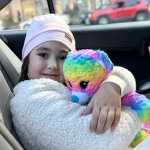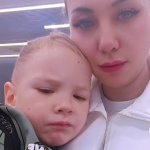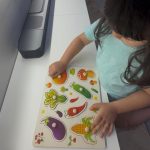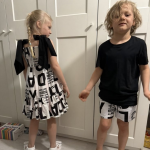Autism and Learning: How to Improve Academic Performance?
Children with autism spectrum disorders develop differently than neurotypical children. Their skills form and evolve in a different sequence. In some cases, autism symptoms affect:
• Attention and interaction with others
• Comprehension
• The ability to concentrate, focus, memorize, and work in a group
In general, autism spectrum disorder involves a range of difficulties that impact many areas of life, including a child’s development and learning abilities. It is important to understand what these challenges are and how they manifest.
Core Characteristics of Autism
- Impairments in Imagination
These reflect difficulties in areas that require flexible thinking, understanding various interests, and following rules. Many individuals with autism:
Do not understand other people’s emotions
• Become easily distressed by changes in routine or unexpected events
• Struggle to process information unless it is presented in their preferred way
• Have a narrow range of interests, but deep expertise in topics they enjoy - Difficulties in Social Relationships
These show up as poor understanding of how to behave with others, which may lead to:
Strong negative reactions to touch
• Avoidance of eye contact, and difficulty interpreting facial expressions or body language
• Inability to talk to strangers or make and maintain friendships - Impairments in Social Communication
A lack of effective communication with others is often expressed through:
Repetitive behavior
• Inability to “read” or understand others’ intentions
• Monologues on various topics without regard for the listener’s interest
• Off-topic comments
• Lack of desire to communicate
• Preference to be alone or stay on the sidelines - Additional Sensory and Motor Challenges
These are associated with irregular sensory processing. Children with autism are often:
Hyper- or hyposensitive to loud sounds, touch, clothing, smells, and certain textures
• Prone to mood swings, aggression, or depression
• Struggling with motor skills, often walking on tiptoes or losing balance
• Easily distracted and unable to maintain focus
In everyday life, such children can learn self-care by imitating what they see. But in school, many children with autism face challenges that require special education programs or placement in specialized schools. When their needs are properly addressed, they can thrive, and their cognitive abilities improve significantly. This must be taken into account when working toward greater inclusivity in education.
A Path to Higher Academic Achievement
Academic performance can also be improved by eliminating the root cause of the challenges — autism itself. The most effective method currently available is cell therapy, an innovative, safe, and natural approach based on stimulating the body’s own regenerative capabilities.
The process involves transplanting the patient’s own stem cells, which avoids rejection due to the lack of an immune response. After being introduced, these cells transform into healthy equivalents of damaged ones and replace them. This leads to a rapid and long-term — often lifelong — positive effect. As a result, the effectiveness of other autism-related therapies and interventions increases significantly.
No other method currently available can eliminate the disorder itself — only reduce its symptoms. This gives cell therapy the potential to become a leading tool in the medical field. It is already widely recognized and practiced in top clinics worldwide, including the Mardaleishvili Medical Center. The center is distinguished by:
• Highly qualified specialists with extensive experience in stem cell transplantation
• State-of-the-art equipment enabling optimal therapeutic outcomes
• World-class service at lower cost compared to other developed countries, thanks to government-regulated pricing
• Comprehensive assistance with travel planning and practical issues, including accommodation during rehabilitation
Fill out the feedback form — let your child succeed in school!
Autism Treatment Center Videos
Autism treatment with own stem cells
Cord blood association congress
International Quality Crown
Autism Treatment Reviews
Autism treatment with own stem cells
The story of Alessandro (6 years old)
Autism Patient Testimonial - Stem Cell Treatment
Clients Testimonials

Lidiya — Elina’s mother Read More

Anna – Sasha’s mother Read More

Amirkhon’s father — Tokhir Read More

Dilana’s mother Read More

Irina and Stefan – Ilya’s parents Read More












